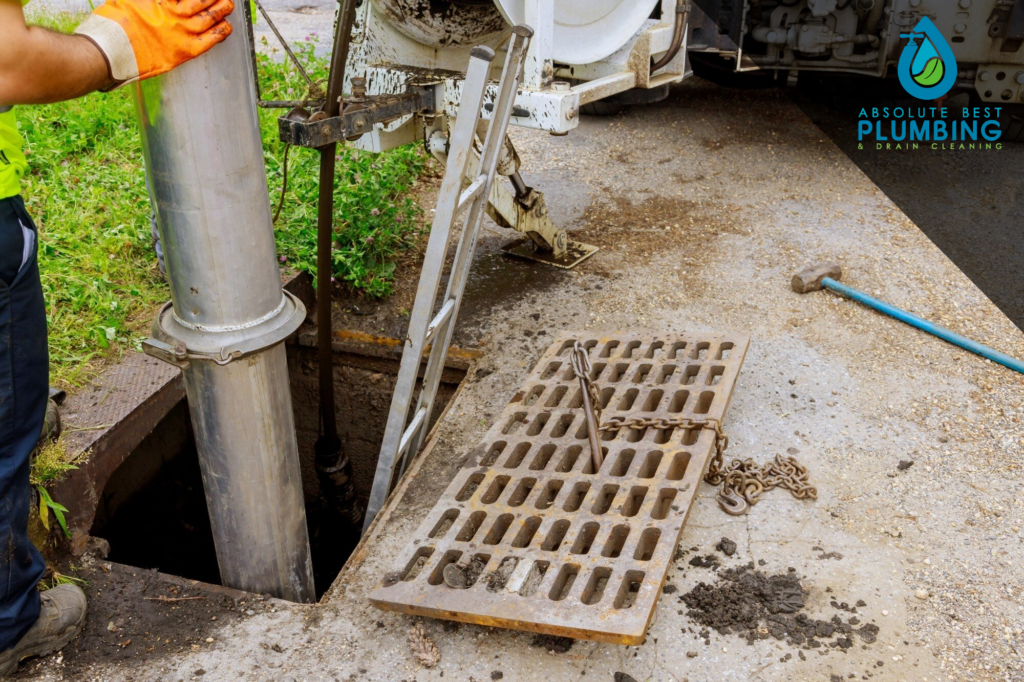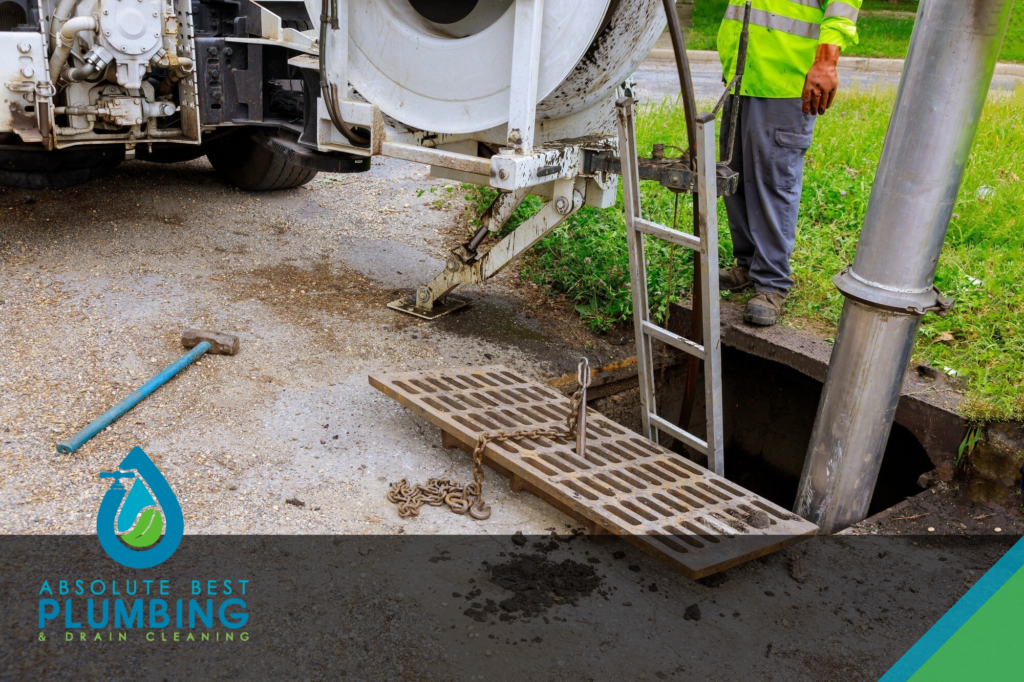- 1026 28th St. Orlando, FL 32805
- License number: cfc1429149
- (407) 930-7309
As a homeowner in Orlando, the plumbing system in your house is essential for your comfort and the overall functionality of your property. One critical component of this system is your septic system. While septic tanks have served many Orlando homes well for decades, they may not always be the most efficient or reliable option. As the city grows and infrastructure improves, more homeowners are considering the benefits of septic to sewer conversion.
If you’re wondering whether this transition is right for your Orlando home, this guide will walk you through everything you need to know about the process, its benefits, and how it can enhance the overall performance of your plumbing system.
A septic to sewer conversion involves switching from a private septic system to the municipal sewer system. While septic systems are independent, on-site systems used for wastewater treatment, sewer systems transport wastewater to a central treatment facility managed by the local government. This means that by converting to a sewer system, you’re no longer responsible for maintaining a septic tank and drain field. Instead, your wastewater will be handled by the city’s infrastructure.

Orlando is experiencing rapid growth, with new residential and commercial developments popping up across the city. As the community evolves, there is a growing need to modernize older properties with updated plumbing systems that meet today’s standards. Here are some compelling reasons to consider a septic to sewer conversion for your home:
Septic tanks can be prone to issues like clogs, backups, and system failures. These problems may arise due to improper maintenance, aging systems, or even issues caused by heavy rainfall, which can overwhelm the tank’s capacity. In contrast, sewer systems are typically more reliable, as they are maintained and monitored by the city, reducing the likelihood of failures and expensive repairs.
Owning a septic system means you are responsible for routine maintenance, including pumping the tank, inspecting the system, and checking the drain field for potential issues. These maintenance tasks can be costly and time-consuming. By switching to a municipal sewer system, most of these maintenance requirements are eliminated, freeing you from the hassle and expense of septic care.
Septic systems rely on on-site treatment, but they can sometimes fail, leading to contamination of the surrounding soil and groundwater. By transitioning to a sewer system, you are contributing to a more sustainable solution, as municipal treatment plants are designed with advanced technologies that are better equipped to treat wastewater and protect the environment.
Homes with a modern plumbing system connected to the municipal sewer system are often seen as more desirable and valuable. If you ever plan to sell your home, potential buyers may be more inclined to purchase a property with fewer long-term maintenance needs and a reduced risk of costly septic repairs.
Septic tanks can sometimes overflow, causing significant property damage. Similarly, septic systems that haven’t been properly maintained may develop clogging problems that can affect the entire plumbing system. By switching to a sewer system, you avoid these risks and reduce the chances of plumbing emergencies.
Now that you understand the benefits of converting to a sewer system, let’s explore the conversion process in Orlando. It’s important to understand the steps involved and the role professional plumbing services in Orlando play in ensuring a smooth transition.
Before making any decisions, it’s essential to consult with a certified plumber who specializes in septic to sewer conversions. A professional plumber will assess your current septic system, evaluate the feasibility of conversion, and guide you through the entire process. You will need to check if the property is located within the boundaries of a municipal sewer line, which is a key factor in determining whether the conversion is possible.
Once you’ve confirmed that a conversion is possible, the next step is obtaining the necessary permits. This process ensures that the conversion complies with local building codes and regulations. Your plumber will typically handle these tasks on your behalf, liaising with local authorities to ensure that all paperwork and inspections are in order.
This is the most involved step in the conversion process. Your plumber will disconnect your home’s plumbing from the septic tank and drain field. This process requires precision to avoid damage to your plumbing system or environmental contamination. The septic tank itself will either be removed or abandoned, depending on local regulations and the size of the system.
After disconnecting from the septic system, your plumber will connect your home’s plumbing to the nearest sewer line. This involves trenching and laying down sewer pipes to link your property with the municipal system. Depending on your property’s location, this process may require digging and installing new pipes.
Once the connection is complete, your plumber will thoroughly test the system to ensure everything is working correctly. This includes checking for leaks, ensuring proper flow, and making sure all connections are secure. After the tests are successful, the system is ready to use.
After the conversion is completed and tested, your plumber will clean up the site and restore any landscaping or property affected during the installation. This ensures that you can enjoy the benefits of your new sewer connection without the mess of the installation process.
Switching from a septic system to a sewer system can have a positive impact on your overall plumbing system. By eliminating the need for a septic tank, your home’s plumbing system will have a more reliable and consistent flow of wastewater. Here are some specific ways that converting to a sewer system can improve your plumbing:
There are several factors that might indicate it’s time to convert from septic to sewer:
Whether you’re dealing with a septic system, needing a water line repair service in Orlando, or requiring faucet repair installation in Orlando, it’s essential to work with a professional plumber. The conversion process can be complicated and requires specific knowledge of Orlando’s plumbing codes and infrastructure. A reliable plumber can guide you through the process, ensuring everything is done to code, and that the system operates efficiently.
When it comes to plumbing services in Orlando, Absolute Best Plumbing is your trusted partner. Our expert team offers a wide range of services, including emergency plumbing services Orlando, Clogged Toilet Repair Services Orlando, water line repair, pipe replacement, and Orlando Water Heater repairs. We have the skills and experience to handle even the most complex plumbing tasks, including septic to sewer conversions. Whether you’re dealing with a plumbing emergency or just need to upgrade your system, we’re here to help!
For more information on our services, visit the following pages:
With our expert knowledge and commitment to quality, you can rest assured that your home’s plumbing is in good hands. Ready to make the switch to a sewer system? Contact Absolute Best Plumbing today to get started!
What is septic to sewer conversion?
Septic to sewer conversion involves transitioning your home’s plumbing system from a private septic tank to the municipal sewer system. This process includes disconnecting your septic system, connecting your plumbing to the city’s sewer infrastructure, and ensuring wastewater is efficiently transported to a centralized treatment facility.
Why should I consider converting from septic to sewer?
Converting from septic to sewer offers numerous benefits, including reduced maintenance, improved reliability, increased property value, and better environmental protection. It eliminates the need for septic tank upkeep and reduces the risk of backups, overflows, and groundwater contamination.
How do I know if my property is eligible for sewer conversion?
Eligibility depends on the proximity of your property to a municipal sewer line. A professional plumber can assess your location, evaluate the feasibility of connection, and guide you through the process, including obtaining necessary permits.
What are the steps involved in a septic to sewer conversion?
The process typically includes:
How long does the conversion process take?
The timeline varies depending on your property’s location and the complexity of the project. On average, the process can take several days to a few weeks, including permitting and installation.
Is septic to sewer conversion expensive?
The cost of converting to a sewer system depends on factors like property size, distance to the sewer line, and necessary permits. While it can be a significant investment, the long-term savings on maintenance and repairs often make it worthwhile. Request a detailed estimate from a professional plumber for accurate pricing.
What happens to my septic tank after conversion?
Depending on local regulations, your septic tank will either be removed or abandoned. If abandoned, it’s typically drained, cleaned, and filled with sand or gravel to prevent collapse or contamination.

Can septic to sewer conversion increase my property value?
Yes, homes connected to a municipal sewer system are often more appealing to buyers due to reduced maintenance requirements and increased reliability. This conversion can enhance your property’s value and marketability.
Are there environmental benefits to converting to a sewer system?
Absolutely. Municipal sewer systems use advanced wastewater treatment technologies, reducing the risk of groundwater contamination associated with septic tank failures. This helps protect the environment and contributes to cleaner, safer water sources.
How does converting to a sewer system reduce plumbing emergencies?
Septic systems can fail due to clogs, overflows, or inadequate maintenance, leading to costly plumbing emergencies. By connecting to a municipal sewer system, you eliminate these risks and ensure a more reliable wastewater management solution.
What should I look for in a professional plumber for septic to sewer conversion?
Choose a plumber with experience in septic to sewer conversions, proper licensing, and knowledge of local Orlando plumbing codes. Check reviews, request references, and ensure they handle permitting and inspections as part of their service.
Can I stay in my home during the conversion process?
Yes, you can typically stay in your home during the conversion process, but there may be brief periods when water service is interrupted. Your plumber will inform you of any temporary inconveniences and work to minimize disruptions.
What if my property is not near a municipal sewer line?
If your property is not within reach of a municipal sewer line, you may not be eligible for conversion. However, a professional plumber can explore alternative solutions or advise on the feasibility of extending a sewer line to your area.
When is the best time to consider septic to sewer conversion?
Consider conversion if you experience frequent septic system issues, plan to sell your home, or live in an area prone to flooding or groundwater contamination. Upgrading during home renovations is also a convenient time to switch.
Does the City of Orlando offer incentives for sewer conversion?
Some municipalities provide incentives, rebates, or financing options for homeowners converting to sewer systems. Check with local Orlando authorities or consult your plumber for information on available programs.
What maintenance is required for a sewer connection?
Once connected to the sewer system, your primary responsibility is keeping your plumbing system in good condition. This includes avoiding clogs, scheduling occasional inspections, and maintaining water line integrity.
How does sewer connection impact water quality?
Municipal sewer systems treat wastewater using advanced processes, removing contaminants before releasing water back into the environment. By converting to sewer, you’re contributing to better water quality for the community.
Where can I learn more about septic to sewer conversion?
Visit resources like the EPA’s Guide to Septic Systems or the Florida Department of Environmental Protection for additional information. Your local plumber can also provide guidance tailored to your specific needs.
By choosing septic to sewer conversion, Orlando homeowners can enjoy a more reliable, efficient, and environmentally friendly plumbing system, ensuring long-term benefits for their property and community.